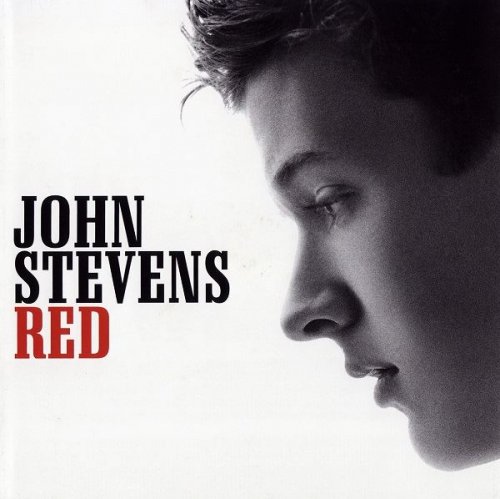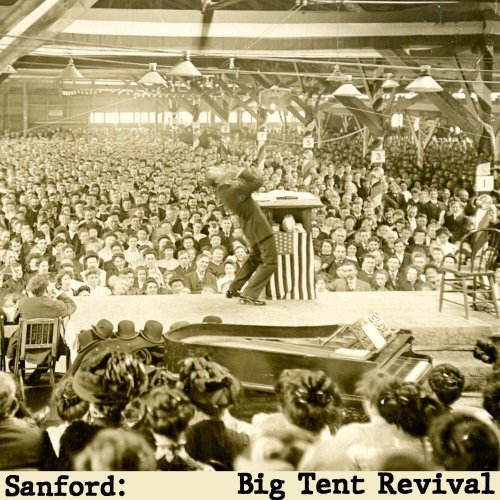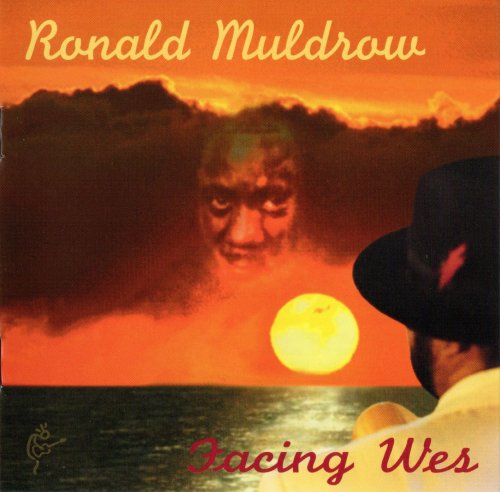John Stevens - Red (2005) CDRip

Artist: John Stevens
Title: Red
Year Of Release: 2005
Label: Maverick
Genre: Vocal Jazz, Pop
Quality: FLAC (tracks+.cue, log, Artwork)
Total Time: 36:47
Total Size: 253 MB
WebSite: Album Preview
Tracklist:Title: Red
Year Of Release: 2005
Label: Maverick
Genre: Vocal Jazz, Pop
Quality: FLAC (tracks+.cue, log, Artwork)
Total Time: 36:47
Total Size: 253 MB
WebSite: Album Preview
01. Come Fly With Me (3:24)
02. My Blue Heaven (2:40)
03. Someone to Watch Over Me (4:44)
04. Here, There and Everywhere (3:02)
05. All of Me (2:58)
06. This Love (4:09)
07. I Only Have Eyes for You (4:05)
08. Let's Fall in Love feat. Erika Christensen (3:07)
09. It Had to Be You (2:47)
10. The Shadow of Your Smile (3:20)
11. Don't Get Around Much Anymore (2:31)
John Stevens was a contestant on the third season of American Idol -- the season that had a notable lack of male contestants. There was John -- cleverly nicknamed "Red" by millions, due to his red hair; Jon Peter Lewis, an enthusiastic, ironic dork who came along just a little bit too early to benefit from the Napoleon Dynamite zeitgeist; George Huff, a sweet and shy neo-soul singer; and Matthew Rogers, a barrel-chested ex-football player who wanted to be a soulman but gravitated toward country. Each of these four contestants -- who represented a third of the grand total of 12 finalists -- had their own niche, but Stevens stood out because he specialized in the Great American Songbook, which is a roundabout way of saying that he was a Frank Sinatra wannabe. Not only did he sing in a different style than the other contestants, but he was painfully shy, which made him quite endearing to a certain portion of the viewing audience who kept him around longer than his shaky vocals and inconsistent performances deserved. Stevens didn't win fans because of his voice -- it was OK, but it lacked warmth and depth, and he was far too mannered, borrowing heavily from Frank, Dean, Bobby Darin, and, especially, how Harry Connick, Jr. synthesized all of those singers when Stevens was a toddler -- but he won fans because he was a unique television personality. He was a scared, sweet kid who won the hearts of young girls and grandmas alike, in a fashion not unlike Clay Aiken in season two, but without his smarminess.
Those were the qualities that not only sustained Stevens throughout the show, but landed him a major-label contract, which is something a lot of his fellow contestants did not get. Instead of cranking out an album right away, Stevens and Maverick took their time, working on the record for about a year and finally releasing Red (well, what else was it going to be called?) in the summer of 2005. That time was spent not rethinking Stevens' sound, but helping him grow into his sound. Clearly, he's had some vocal lessons since American Idol, since he sounds relatively assured -- not only does his voice not quaver, but he varies his phrasing, giving momentum to the songs. Of course, his phrasing is borrowed wholesale from Sinatra, Martin, Darin, and Connick, something that's all the more evident because he's performing all-too-familiar standards associated with those singers. The difference between Red and what Stevens did on television is that his homage is better and more effective on record, since he's grown as a vocalist and the record is crisply, professionally produced. It's such a sharp production that the record makes Stevens seem like a more effective vocalist than he actually is, and that will no doubt satisfy both his young and old fans, who, depending on their age, will either enjoy hearing these songs for the first time or will be delighted to hear a young singer carry the torch. But for anybody who doesn't fall into those two categories, Red is a dull ride because of the predictability of the material and Stevens' performance. And the thing is, it didn't need to be that way. The two times that the record breaks from the well-worn book of American standards, the album is much more engaging. First, there's a gentle acoustic-based cover of the Beatles' "Here, There and Everywhere" that's quite sweet and affecting, but what's really fun is a lazily swinging revamping of Maroon 5's "This Love," which is more imaginative and infectious than the rest of the album combined. If Stevens and his producers had followed this path and revamped new (or relatively new) pop songs, his debut would have sounded fresh and distinctive, and helped separate him from his influences. But taking such a path would have been a risk, and it might have alienated the fans he had on the show. So, they decided on the path of least resistance, winding up with an album that will certainly please his fans and certainly make no impression on anybody else.
Those were the qualities that not only sustained Stevens throughout the show, but landed him a major-label contract, which is something a lot of his fellow contestants did not get. Instead of cranking out an album right away, Stevens and Maverick took their time, working on the record for about a year and finally releasing Red (well, what else was it going to be called?) in the summer of 2005. That time was spent not rethinking Stevens' sound, but helping him grow into his sound. Clearly, he's had some vocal lessons since American Idol, since he sounds relatively assured -- not only does his voice not quaver, but he varies his phrasing, giving momentum to the songs. Of course, his phrasing is borrowed wholesale from Sinatra, Martin, Darin, and Connick, something that's all the more evident because he's performing all-too-familiar standards associated with those singers. The difference between Red and what Stevens did on television is that his homage is better and more effective on record, since he's grown as a vocalist and the record is crisply, professionally produced. It's such a sharp production that the record makes Stevens seem like a more effective vocalist than he actually is, and that will no doubt satisfy both his young and old fans, who, depending on their age, will either enjoy hearing these songs for the first time or will be delighted to hear a young singer carry the torch. But for anybody who doesn't fall into those two categories, Red is a dull ride because of the predictability of the material and Stevens' performance. And the thing is, it didn't need to be that way. The two times that the record breaks from the well-worn book of American standards, the album is much more engaging. First, there's a gentle acoustic-based cover of the Beatles' "Here, There and Everywhere" that's quite sweet and affecting, but what's really fun is a lazily swinging revamping of Maroon 5's "This Love," which is more imaginative and infectious than the rest of the album combined. If Stevens and his producers had followed this path and revamped new (or relatively new) pop songs, his debut would have sounded fresh and distinctive, and helped separate him from his influences. But taking such a path would have been a risk, and it might have alienated the fans he had on the show. So, they decided on the path of least resistance, winding up with an album that will certainly please his fans and certainly make no impression on anybody else.


![Bei Bei - Two Moons (2025) [Hi-Res] Bei Bei - Two Moons (2025) [Hi-Res]](https://img.israbox.com/img/2026-02/19/j5lae93g4obtper3un20ilcnv.jpg)
![Hans Backenroth - For Ray, Milt & MJQ (2026) [Hi-Res] Hans Backenroth - For Ray, Milt & MJQ (2026) [Hi-Res]](https://www.dibpic.com/uploads/posts/2026-02/1771506232_lbvu33sttdof0_600.jpg)
![Emanuele Pellegrini - Stories of Light and Dark (2026) [Hi-Res] Emanuele Pellegrini - Stories of Light and Dark (2026) [Hi-Res]](https://www.dibpic.com/uploads/posts/2026-02/1771347677_folder.jpg)


![Johannes Enders - Standard Questions (2026) [Hi-Res] Johannes Enders - Standard Questions (2026) [Hi-Res]](https://www.dibpic.com/uploads/posts/2026-02/1771328675_folder.jpg)
